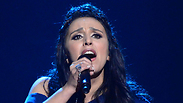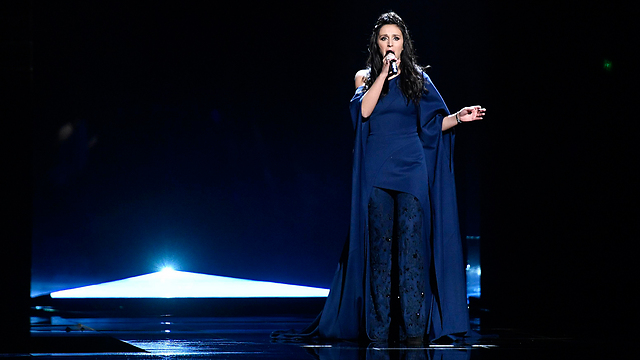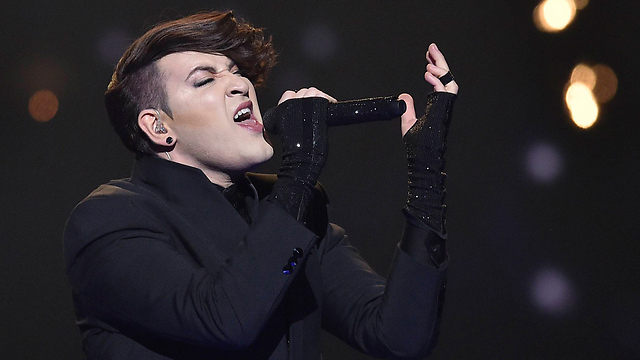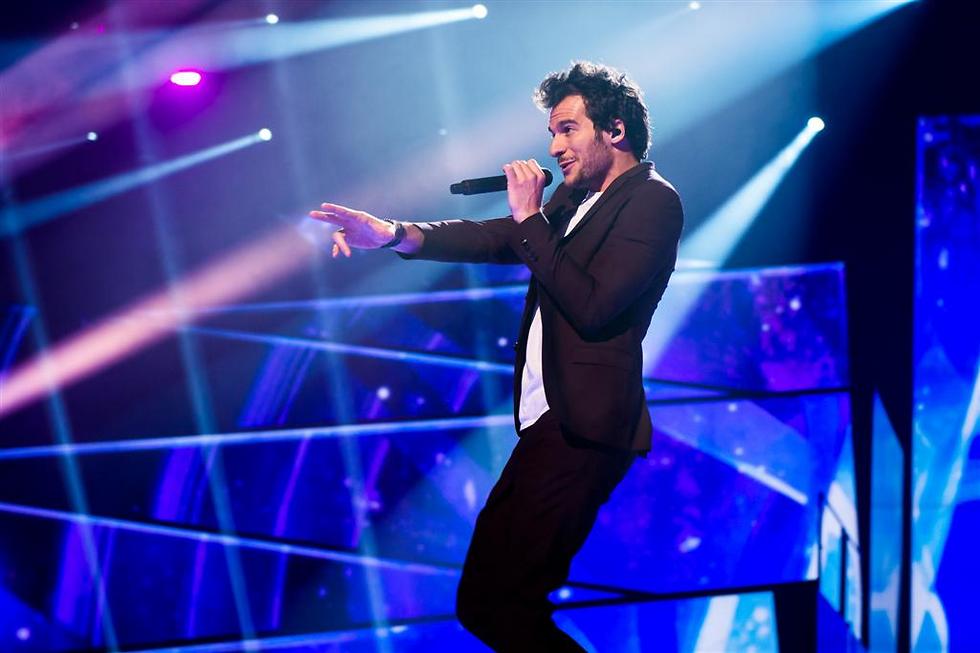
Eurovision 2016 Winner Jamala
Photo: AFP
Ukrainian singer Jamala's song about Soviet dictator Josef Stalin's 1944 deportation of the Crimean Tatars was crowned the winner of the 2016 Eurovision Song Contest early Sunday, an unusual choice for the historically-kitschy pop fest.
Susana Jamaladinova, a 32-year-old trained opera singer who uses the stage name Jamala, received the highest score of 534 points for her song "1944," after votes from juries and TV viewers across Europe were tallied following performances Saturday night by the 26 finalists at Stockholm's Globe Arena.
Australia's Dami Im was second with 511 points, followed by Russia's Sergey Lazarev in third with 491.
Representing Israel was singer Hovi Star, who reached 14th place with his song "Made of Stars." The song received 135 points in total, including one douze points (12 points, the highest score a country can give a contestant) from Germany.
"We feel great," said Star following the announcement. "We got 12 points from Germany; Israel hasn’t received that since 2005."
The contest also included a second Israeli representative, Amir Haddad, who represented France with his song "J'ai Cherché." Haddad came in sixth place.
Amid entries about love and desire, Jamala's song stood out. The song’s lyrics describe how Crimean Tatars—including her own great-grandmother—were deported in 1944 by Soviet authorities, with many of them dying or starving to death. It was only decades later that some of the survivors were allowed to return to the Crimean Peninsula.
"If you sing, if you talk about truth, it really can touch people," Jamala told reporters after the competition.
The focus on Crimea, whose annexation by Russia in 2014 was opposed by its Tatar minority, could be considered a swipe at Moscow, but Jamala insisted there was no political subtext, and fortunately for her the contest’s officials agreed, as the competition rules prohibit making any political statements.
Australian contestant Im, a Korean-born singer who had won the Australian "X Factor" talent show, was in the lead following a count of the jury votes. However, her song "Sound of Silence" was bumped down one spot when the popular vote was added.
Despite Australia being rather far from Europe, the Eurovision show is hugely popular there and has been broadcast in Australia for more than 30 years. Last year, for the Eurovision’s 60th anniversary, Australia was invited to compete in the competition, and this year it was invited again.
The annual contest is known for its eclectic mix of rock ballads, techno-pop and occasional folkloric tunes. However, in recent years entries have moved away from ethnic influences toward more mainstream dance music.
This year saw increasingly elaborate productions, with pyrotechnics and computer graphics taking center stage. Russia’s Lazarev had arguably the most striking visual effects during his performance of the club anthem "You Are the Only One." At one point, the black-clad Russian scaled a LED display and rode a virtual iceberg through space.
Some Russian fans accused the judges of political bias, noting that Lazarev got the highest score in the popular vote. "I'm so sad," said Dennis Kalinkin, a 29-year-old Russian who lives in France. "All of Europe voted for Russia. Russia was first. But the jury voted for other countries."
Bulgaria placed fourth, ahead of host nation Sweden. Germany's Jamie-Lee Kriewits, an 18-year-old inspired by Japanese schoolgirl fashion, finished last with just 11 points.
This year marked the first time the Eurovision Song Contest was broadcast live in the United States. It was broadcast by the lesbian, gay, bisexual and transgender cable TV network Logo, appealing to the contest’s strong cult following in the gay community. Last year's contest reached nearly 200 million viewers around the world.
The theme of this year's contest was "Come Together," a subtle message for Europe to stay united amid a backlash against migration to the continent and rising nationalism.
The director of the TV alliance that produces the Eurovision Song Contest said the show's message of unity is particularly significant at a time when Europe is seeing its internal borders returning and Britain is holding a referendum on whether to exit from the European Union.
European Broadcasting Union Director-General Ingrid Deltenre told The Associated Press before Saturday's final that "you have reactions in Europe which are very polarizing ... we are sending out a signal. It's a signal about tolerance, about openness, about diversity."
Closing the ceremony was a performance by American singer Justin Timberlake, who is currently promoting his latest film, "Trolls."



















